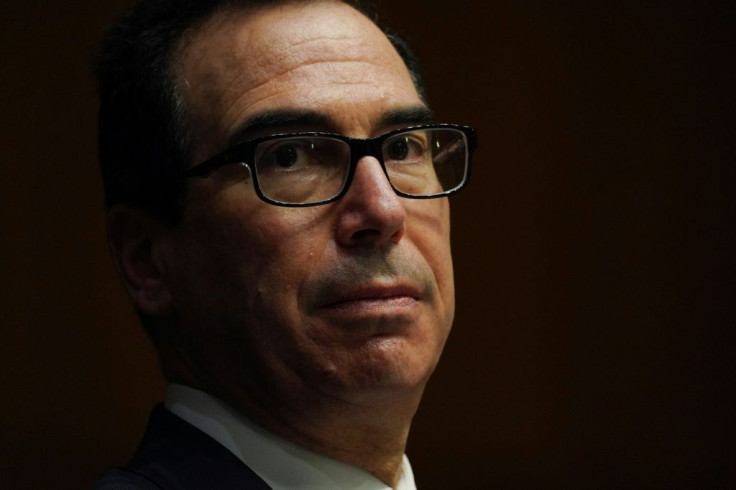Are Second Stimulus Checks On The Way? House Passes $2.2T Coronavirus Relief Bill
KEY POINTS
- The House of Representatives passed a $2.2 trillion coronavirus relief bill by a 214-207 vote
- Bill unlikely to pass Senate as Republicans disagree with spending levels, programs
- A second round of $1,200 stimulus checks are on hold until lawmakers reach an agreement
The U.S. House of Representatives passed a $2.2 trillion coronavirus relief bill proposed by Democrats on Thursday night, but don't look for a second round of stimulus checks in the mail just yet.
The House narrowly approved the relief plan by a 214-207 majority, with 18 Democrats reportedly voting against the proposal, according to CNBC,
While the vote is an important first step for Democrats, the legislation is unlikely to pass the Senate and be signed into law. Republicans have openly opposed the COVID-19 relief bill as partisan, unrealistic, and too expensive.
House Speaker Nancy Pelosi and Treasury Secretary Steven Mnuchin pushed for last-minute, bipartisan talks and struggled to compromise on a deal that would help Americans cope with the economic impact brought about by the pandemic.
“Today’s so-called compromise isn’t realistic or responsible,” House Minority Leader Kevin McCarty said during debate. “It’s the Pelosi Pipedream 2.0, and it’s filled with the same radical, reckless, and ridiculous ideas as the first bill.”
The updated $2.2 trillion HEROES Act that House Democrats proposed includes a second round of $1,200 individual stimulus payments (and $500 per dependent), plus provisions that would relax the conditions to qualify for the stimulus checks and allow more people to receive direct payments.
The new legislation, dubbed Heroes Act 2.0, would allow those who filed their taxes with taxpayer-identification numbers to be eligible, including people who are not U.S. citizens or resident aliens. The updated bill will also extend eligibility to full-time students under age 24 and adult dependents.
But without support from the White House and some Senate Republicans, the “Heroes Act 2.0” has little chance of passing. It is also unclear whether Senate Leader Mitch McConnell, R-Ky., will even bring the bill to the Senate floor for a vote, according to Forbes.
While the behind-close-doors negotations continue, stimulus checks are hold until a deal is reached. Mnuchin has said the processing of payments could begin within a week of a bill's passage, but the current stalemate is in its second month.
Thursday's vote followed another negotiation session between Pelosi and Mnuchin. They disagreed on how much aid state and local governments should receive and whether they need to establish a liability shield for businesses and schools.
Earlier in the day, Pelosi dismissed the possibility that the talks with Mnuchin this week were the last. She also said she would continue working on negotiations for a bill that could pass both the House and Senate, Bloomberg reported.
“I’m hopeful that they can produce something. I never say this is the last chance,” she said.
On Wednesday, Treasury Secretary Mnuchin presented the White House’s counter-offer to Pelosi’s $2.2 trillion bill that amounted to $1.6 trillion and would provide $250 billion in aid to state and local governments, as well as weekly federal unemployment benefits amounting to $400 per individual.
The White House’s proposal also included $150 billion for education, $75 billion for coronavirus testing and contact tracing, and $60 billion for rental and mortgage assistance.

© Copyright IBTimes 2025. All rights reserved.






















